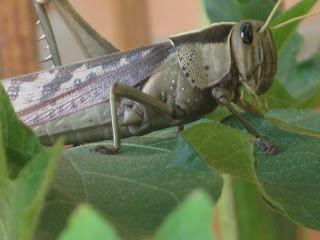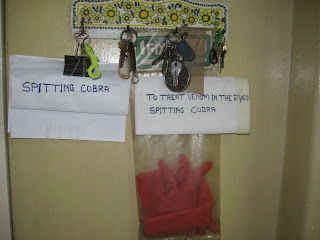 Oddly enough, life in Africa triggers thoughts of . . . Texas, and Texas playing second fiddle no less! This would be unthinkable for Charlie, a college classmate who was a Texas evangelist of sorts. Every chance he got Charlie spouted the good news of the state that stands alone; everything in the Lone Star State: bigger and better.
Oddly enough, life in Africa triggers thoughts of . . . Texas, and Texas playing second fiddle no less! This would be unthinkable for Charlie, a college classmate who was a Texas evangelist of sorts. Every chance he got Charlie spouted the good news of the state that stands alone; everything in the Lone Star State: bigger and better. Move over Texas. Zambia will give you a run for your money, at least in terms of the natural world. Everything wild here seems bigger (bees) or more threatening (mosquitos and thunderstorms) or more determined to survive (termites), if not conquer (ants). Here for barely a week, I had the thrill to see a lion in the wild. The beast was scarcely visible as it hunkered down at dusk in the wispy, straw-colored bush grass, calculating taking an unwitting other’s life. “How violent!” I said to my colleague. He pointed out that if the other animal didn’t die, the lion would. How violent. What came to mind was the difference between the world as it was created, “good,” and as it became after the Fall. Good Creation became violent Nature.
Move over Texas. Zambia will give you a run for your money, at least in terms of the natural world. Everything wild here seems bigger (bees) or more threatening (mosquitos and thunderstorms) or more determined to survive (termites), if not conquer (ants). Here for barely a week, I had the thrill to see a lion in the wild. The beast was scarcely visible as it hunkered down at dusk in the wispy, straw-colored bush grass, calculating taking an unwitting other’s life. “How violent!” I said to my colleague. He pointed out that if the other animal didn’t die, the lion would. How violent. What came to mind was the difference between the world as it was created, “good,” and as it became after the Fall. Good Creation became violent Nature.
The rainy season in Zam spawned chameleons. They really do change colors. Fascinating. They also eat unsuspecting grasshoppers, live, headfirst. How violent.
Lion ants, or "doodlebugs " carve conical traps in sandy soil. Then they burrow beneath the sand and wait for insects to stray into the crater.

When these panic-stricken insects struggle to crawl up and out of the hole to evade the lion ant’s clutches from below, the sides of the pit collapse. The hapless victim becomes a protein shake. How violent.
I have never before experienced thunder and lightning storms as violent as in Zam. I have a newfound appreciation for the "I hear the rolling thunder" lyric of the hymn “How Great Thou Art.” The other day my eight-year old neighbor admitted to his dad that even though he knew there was no reason to be frightened, he was afraid of the thunder. I’m not sure his premise is valid. A shiver ran up my spine when that thunder cracked right above me. What power.

 Now I can’t get Psalm 29 out of my head. Google it and note how it ends.
Now I can’t get Psalm 29 out of my head. Google it and note how it ends. Even the slightest of insects are associated with danger, insects I’ve only known as pests. Here they can kill you. Zam’s mosquitos look smaller than ours, but they dart around much faster, and are better at dodging my attempts at violence. Of course, they transmit malaria, which I know too well. I’m among the fortunate. One million African children die from malaria every year. How violent.



What if someone could come and reverse this violence and death, bring hope, new life, break into space and time and usher in peace, renew and restore Nature to Creation? If only there was One to come free us from this violence. O come, O come, Immanuel. Peace and Joy! Merry Christmas!

